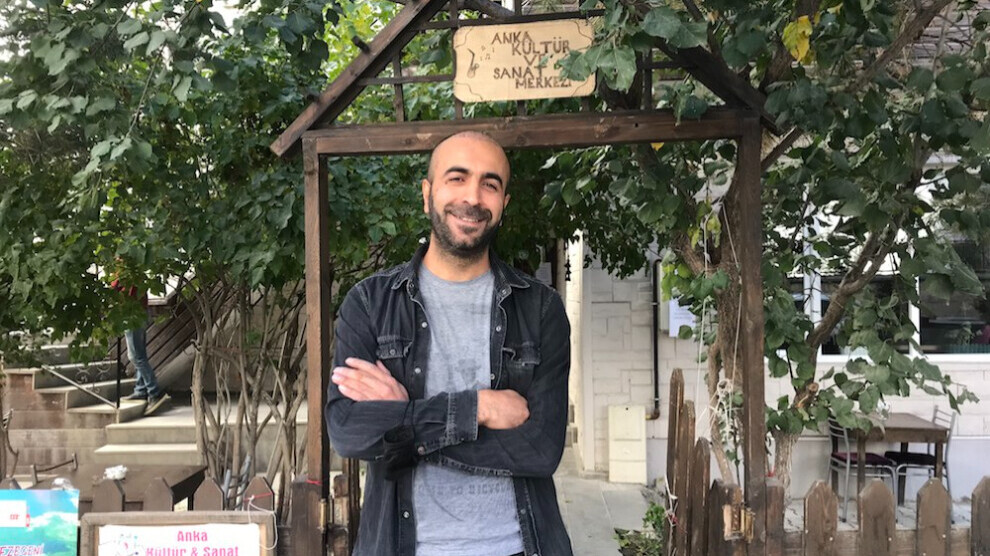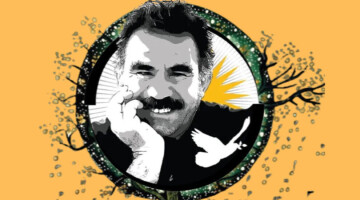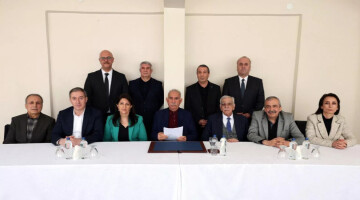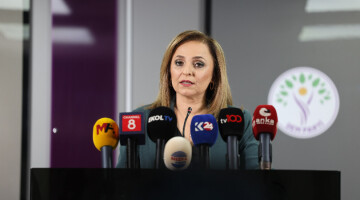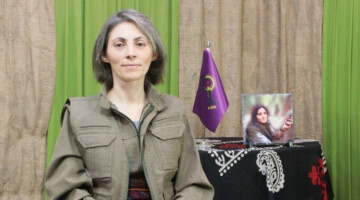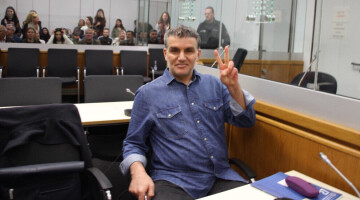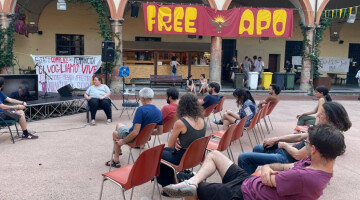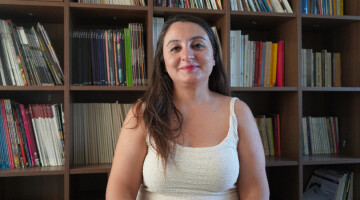The Anka cultural center in Van has existed for more than 20 years. Its history is shaped by the struggle against war, cultural assimilation and repression through the means of theater, art and music.
The center organises trainings in many different areas of the performing and visual arts, with a special focus is on music. In the beginning it was the traditional instruments of Kurdish sounds, such as def (drum), zirne (shawm) or the tembûr (long-necked lute) that were taught, but the social understanding of music has also changed, in time of resistance, in the cultural centers. “You can now find a violin, piano or cello in almost every house,” says Necdet Bayat, the founder of Anka. While the AKP organizes events permanently in Van, the cultural center is prevented from organising activities by the ban on events and actions that has been in place for more than four years.
In this interview with ANF, Necdet Bayat provides information about the work in the centre and his work as well as the situation in Van.
How did you get into music?
I am originally from Uludere in Şırnak, but spent my childhood and youth in Van. I started with music at the time of the Gulf War. My family had built shelters in our apartment for fear of the bombs. In the nineties it was common practice to set up bunker rooms against poison gas in basements. Everyone in Van did that back then. I was about ten years old and had a minor accident. Since I was a child, I cried incredibly hard, but when I saw my uncle's tembûr, I fell silent. They put the lute on my lap and I began to connect to the instrument. Later I experienced a lot of pressure so that I wouldn't make music.
What do you mean by "pressure"?
Music was not really supported within society at the time. People had more superficial concerns, and there was no music market. Religion also played a role. One was considered "not a true believer". Families felt ashamed when a member engaged in music. I also suffered a lot from it. But somehow I managed to get myself a lute. My father wasn't at all enthusiastic about my occupation with music and destroyed my lute several times. I kept fixing it, but he never missed an opportunity to break it again.
Did you have a musical education?
Yes, I studied at the Akdeniz University Conservatory. But I couldn't graduate.
Why?
On the one hand, there were political reasons. But it was also because I believed that the classic Turkish understanding of education would not help me. During this time, I also made music for films.
How did you convince your family?
It wasn’t that easy. It was 2000 when I escaped the pressure and flew to Istanbul. There were serious disputes with the state there. You can imagine it. My family then brought me back to Van, but they stopped interfering with my music. Back then I wanted to get myself a lute again and went into a store, but it seemed incredibly expensive to me. I called the manufacturer and offered to sell the instruments in Van. At first they responded, but when I said I had no money, people were no longer interested and hung up. After about a week, hundreds of the company's products suddenly arrived. So the way was prepared to break the usual relationship to music in this city.
Then you opened your first instrument shop in Van?
Indeed. We brought all kinds of instruments to Van. The time when you could almost buy just Def, Zirne and Tembûr here was over.
What was the atmosphere like back then?
At first, people only came to the store to take photos. Over time, many people became interested in the violin.
So that was the beginning of Anka too?
Yes, as the number of people who wanted to learn an instrument increased, Anka gradually found its way into life. Anka has been artistically active for 20 years. We started with courses in the various areas.
And was that difficult?
We couldn't teach all the instruments at first. We started with the lute and percussion. People from other cities came, worked for us and trained to be teachers. A violin, piano or cello can now be found in almost every house here in Van. We have made a contribution to this. That happened under difficult conditions. We didn't have any support.
What changes has your work brought about? How is the fight against cultural assimilation going?
That is a historical problem. Cultural assimilation occurs in all societies. Conditions in Turkey made people feel more concerned about their primary needs. The cultural area was seen more as something belonging to western societies. There were political and social processes that initiated development, as well as those that stood in its way. We live in this region and its historical name is Kurdistan and this region speaks Kurdish but it is forbidden to make music in that language. We first started playing and teaching Kurdish songs. We said that Kurdish works can also be played on the violin and the piano. I think the cultural richness of this assimilated society helped.
How did the resistance to repression come about?
We look at the ruling system and the ruling order from an opposition point of view and also shape our art in this way. Today many people from Van bring their children to us to learn the piano. They want them to play Kurdish pieces on classical western instruments too.
There is a de facto state of emergency in Van for more than 1500 days. What are the consequences of this on your work?
That means nothing less than the fact that 1500 of our activities have been banned. We continue in a very restricted environment. But we want to hold events in which everyone can participate. It should be open events. It is neither possible to propose our offers, nor can we work according to our wishes and plans. The activities of friendly institutions do not take place either.
Has that pushed people into other areas?
Yes. You can see that very clearly in Van. A highly problematic type of “coffee house” culture has developed. The number of problematic coffee houses in the province now runs into the thousands. You will remember that in October 2011, a devastating earthquake hit Van. Before that it was a much more social area. The government has separated the people from the city and put them in state-owned prefabricated buildings in the suburbs. These houses are like prisons. If you go there in the winter, you can't get out. You can go out the door maybe once a week. Before the earthquake, these people lived in the center of Van.
But it's not just about bans: the people in this city were separated and isolated from one another after the earthquake. We used to have to turn people away because there was no more space in our courses or other events, now we try to help each one. Cultural reflexes have also changed. The ruling party continues its activities as the ban does not apply to them. People close to it also take part in these events. Our offers are prohibited in independent locations such as our cultural center. At the moment we are preparing a play called “Anrecht”. We don't even know whether it will be allowed or not. But we are still preparing.

